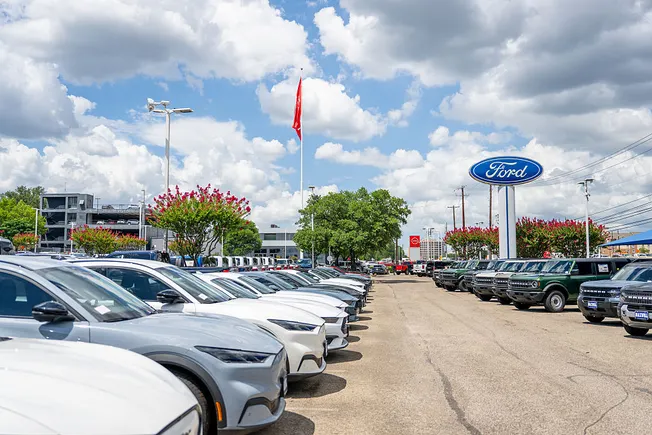Let WardsAuto’s free newsletter keep you informed, straight from your inbox.
The average new car cost topped $50,000 for the first time ever last month, according to Cox Automotive.
Vehicle affordability remains a top concern for consumers and dealers, as the average new-vehicle transaction price topped $50,000 for the first time ever in September, according to an Oct. 13 report from Kelly Blue Book.
The average new-vehicle transaction price was $50,080 in September, an increase of 3.6% from a year ago, according Cox Automotive.
Kelly Blue Book is a Cox Automotive company.
For perspective, the average new-vehicle transaction price in September 2019 was $37,590. That’s before the COVID-19 pandemic began in early 2020.
Since then, vehicle prices are up for both the long- and short-term, according to Cox Automotive. But more affluent buyers can afford to spend more on new vehicles, which is contributing to sales of higher-priced models.
“Today’s auto market is being driven by wealthier households who have access to capital, good loan rates, and are propping up the higher end of the market,” said Cox Automotive analyst Erin Keating in the release.
Meanwhile, many price conscious consumers — including well-qualified ones with good credit — are turning to used vehicles instead. This is also “propping up the higher end of the market,” Keating said.
Another long-term trend driving average vehicle prices higher is the switch from smaller and cheaper passenger cars to bigger and more expensive pickups, SUVs and crossovers. The trend reflects changing consumer tastes, but it also shows that domestic OEMs are essentially dropping unprofitable passenger cars in favor of more profitable trucks and SUVs.
Still, interest rates also remain at a high level, even though the Federal Reserve recently cut rates and indicated it’s considering additional reductions. The average new-vehicle interest rate was 9.43% in September, and 14.12% for used vehicles, according to Cox Automotive.
One of the short-term factors that drove average transaction prices higher in the third quarter is sales of more expensive and sought-after electric vehicles, Keating said in the report.
EV market share reached 10.5% in September, as consumers rushed to beat a Sept. 30 deadline to take advantage of the expiring $7,500 federal EV tax credit. KBB says a record-high 437,487 EVs were sold in the third quarter of 2025.
Another short-term factor impacting average new vehicle prices are new 2026 models accounting for a growing share of dealer inventory. These new vehicles often come with new model-year price increases.
Analysts also expect that tariffs will drive transaction prices higher, but not until 2026, as OEMs have absorbed more of the costs than expected, instead of passing it along to consumers, according to S&P Global.
Get the free daily newsletter read by industry experts
J.D. Power finds wait times, as well as poor EV service, drag down scores. Regulators cite billions lost to hidden fees, while regional enforcement highlights problems from Florida to Ohio.
The site in Dearborn, Michigan, has served as the center of the automaker’s global operations since 1956.
Keep up with the story. Subscribe to the WardsAuto free daily newsletter
Subscribe to WardsAuto for top news, trends & analysis
Get the free daily newsletter read by industry experts
Want to share a company announcement with your peers?
Get started ➔
J.D. Power finds wait times, as well as poor EV service, drag down scores. Regulators cite billions lost to hidden fees, while regional enforcement highlights problems from Florida to Ohio.
The site in Dearborn, Michigan, has served as the center of the automaker’s global operations since 1956.
The free newsletter covering the top industry headlines











